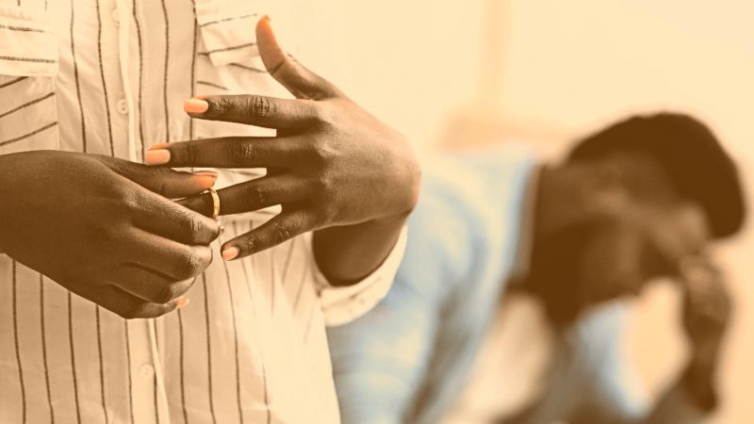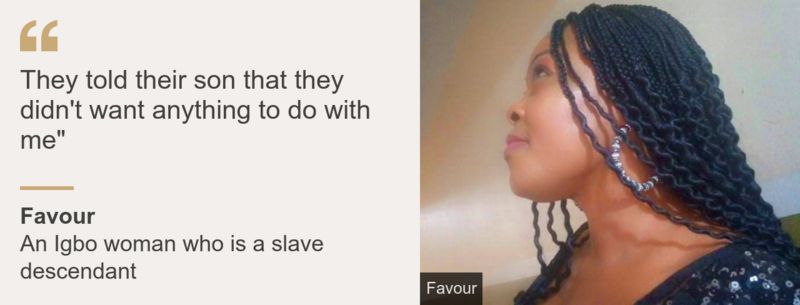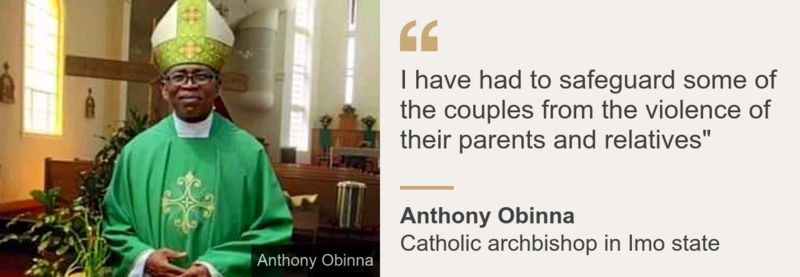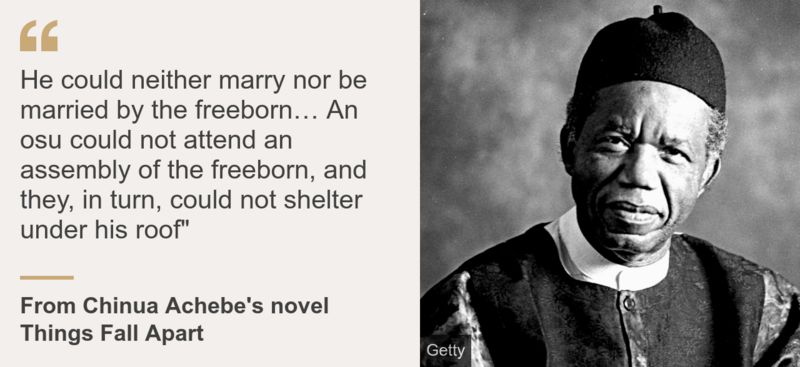In a tragedy reminiscent of Romeo and Juliet, a couple in Nigeria killed themselves earlier this month after their parents had forbidden them from marrying because one of them was a descendant of slaves.
"They're saying we can't get married... all because of an ancient belief," the note they left behind said.
The lovers, who were in their early thirties, hailed from Okija in south-eastern Anambra state, where slavery was officially abolished in the early 1900s, as in the rest of the country, by the UK, Nigeria's colonial ruler at the time.
But descendants of freed slaves among the Igbo ethnic group still inherit the status of their ancestors and they are forbidden by local culture from marrying those Igbos seen as "freeborn".
"God created everyone equally so why would human beings discriminate just because of the ignorance of our forefathers," the couple said.
Many Igbo couples come across such unexpected discrimination.
Three years ago Favour, 35, who prefers not to use her surname, was preparing for her wedding to a man she had dated for five years, when his Igbo family discovered that she was the descendant of a slave.
"They told their son that they didn't want anything to do with me," said Favour, who is also Igbo.
At first, her fiancé was defiant, but the pressure from his parents and siblings soon wore him down and he ended their romance."I felt bad. I was so hurt. I was so pained," she said.
Prosperous but 'inferior'
Marriage is not the only barrier slave descendants face.
They are also banned from traditional leadership positions and elite groups, and often prevented from running for political office and representing their communities in parliament.
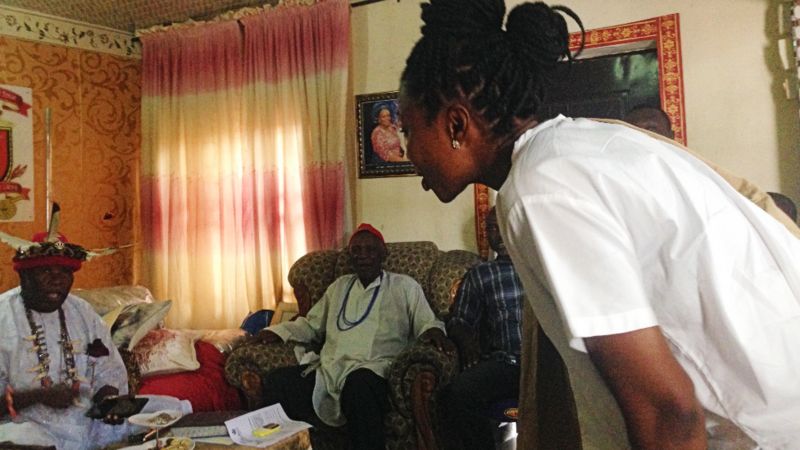
However, they are not hindered from education or economic advancement.
The ostracism often pushed them to more quickly embrace the Christianity and formal education brought by missionaries, at a time when other locals were still suspicious of the foreigners.
Some slave descendants are today among the most prosperous in their communities, but no matter how much they achieve, they are still treated as inferior.
In 2017, 44-year-old Oge Maduagwu founded the Initiative for the Eradication of Traditional and Cultural Stigmatisation in our Society (Ifetacsios).
For the past three years, she has been travelling across the five states of south-eastern Nigeria, advocating equal rights for descendants of slaves.
"The kind of suffering that the black people are going through in America, the slave descendants here are also going through the same," she said.
Ms Maduagwu is not a slave descendant, but she observed the inequality while growing up in Imo state and was moved to tackle it after watching the devastation of her close friend who was prevented from marrying a slave descendant.
During her trips, Ms Maduagwu meets separately traditional persons of influence and slave descendants, then mediates dialogue sessions between the two groups.
"Men sat down to make these rules," she said. "We can also sit down and remake the rules.
"Descendants of slaves among the Igbo fall into two main categories, the ohu and the osu.
The ohu's ancestors were owned by humans, while the osu's were owned by gods 'people dedicated to community shrines'.
"Osu is worse than slavery," said Ugo Nwokeji, a professor of African studies at the University of California, Berkeley, who thinks the osu was wrongly classified as slaves by the missionaries.
"Slaves could transcend slavery and became slave masters themselves but the osu for generations unborn could never transcend that."
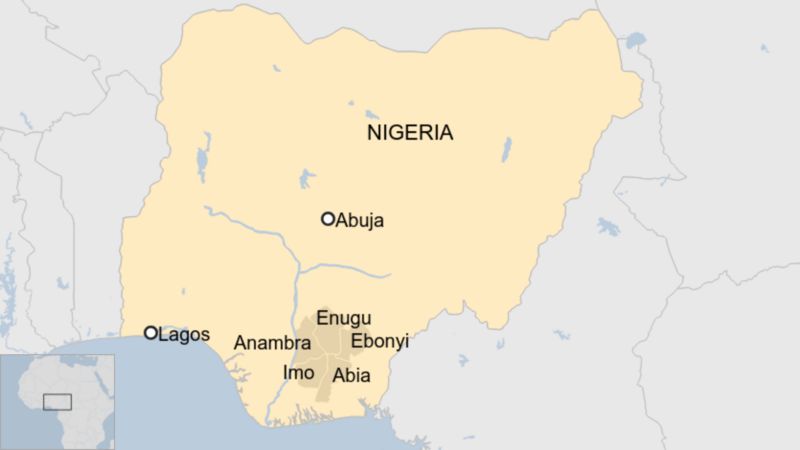
Discrimination against the osu does tend to be worse.
While the ohu are marginalised as outsiders - with no known places of origin or ageless ties to the lands where their ancestors were brought as slaves - breaking taboos about relations with the osu is accompanied, not just by fear of social stigma, but of punishment by the gods who supposedly own them.
Favour's fiancé was told by his father that his life would be cut short if he married her, an osu.
"They instilled fear in him," she said. "He asked me if I wanted him to die."
'Grassroots engagement'
Such fears have made it difficult to enforce laws against discrimination which exist in the Nigerian constitution, plus a 1956 law by Igbo lawmakers specifically banning discrimination against ohu or osu.
"Legal proscriptions are not enough to abolish certain primordial customs," said a Catholic archbishop in Imo state,Anthony Obinna, who advocates for an end to the discrimination.
"You need more grassroots engagement."
In her advocacy, Ms Maduagwu educates people on the various ways in which traditional guidelines on relating with the osu have been breached, "without the gods wreaking any havoc".
"Today, we are tenants in their houses, we are on their payroll, we go to borrow money from them," she said.
Such association with the osu would have been unthinkable in the past.
No official data exists on the number of slave descendants in south-eastern Nigeria.
People tend to hide their status, although this is impossible in smaller communities where everyone's lineage is known.
Some communities have only ohu or osu, while some have both.
In recent years, increasing agitation from ohu and osu has led to conflict and unrest in many communities.
Some slave descendants have started parallel societies with their own leadership and elite groups.
Latest Stories
-
Gold Fields Ghana Foundation challenges graduates to maximize benefits of community apprenticeship programme
1 hour -
GBC accuses Deputy Information Minister Sylvester Tetteh of demolishing its bungalow illegally
1 hour -
Boost for education as government commissions 80 projects
1 hour -
NAPO commissions library to honour Atta-Mills’ memory
2 hours -
OmniBSIC Bank champions health and wellness with thriving community walk
2 hours -
Kora Wearables unveils Neo: The Ultimate Smartwatch for Ghana’s tech-savvy and health-conscious users
2 hours -
NDC supports Dampare’s ‘no guns at polling stations’ directive
2 hours -
Police officer interdicted after video of assault goes viral
2 hours -
KNUST’s Prof. Reginald Annan named first African recipient of World Cancer Research Fund
2 hours -
George Twum-Barimah-Adu pledges inclusive cabinet with Minority and Majority leaders
3 hours -
Labourer jailed 5 years for inflicting cutlass wounds on businessman
3 hours -
Parliament urged to fast-track passage of Road Traffic Amendment Bill
3 hours -
Mr Daniel Kofi Asante aka Electrician
3 hours -
Minerals Commission, Solidaridad unveils forum to tackle child labour in mining sector
3 hours -
Election 2024: Engagement with security services productive – NDC
3 hours

